- Home
- Paul Christopher
Red Templar Page 10
Red Templar Read online
Page 10
It had taken them almost an hour to descend through a series of tunnels and manholes to the Pushkinskaya metro station. They’d come up on the track bed in their rubberized protective suits, suddenly finding themselves in the ornate, arched, pale marble station. Genrikhovich led them onto a Number One line train, and by the time they reached the end of the line at Novoye Devyatkino they had the entire car to themselves, the stench emanating from the suits having driven everyone else away.
Marina Genrikhovich’s dacha was on a narrow lane well away from the nearest apartment block and was completely private. While Genrikhovich ran himself a bath, Holliday and Eddie took a bar of soap down to the fast-running creek at the end of the property, stripped off the suits and took the plunge. The water was freezing but neither man cared. They were more than willing to endure the cold just to get the smell of the sewers off.
“Your sister must be a large woman, amigo,” said Eddie, slipping into a red dragon-motif silk bathrobe that came only to his knees. Genrikhovich had built a blazing fire, and Eddie sat on a velvet footstool, warming up.
“Yes. Even as children I was the one who ate no fat and Marina at no lean. She has a freezer in the kitchen with enough food to last through the next ice age.”
“Good,” said Eddie. “I could, how you say it, eat a horse.”
“I think she has some sudzhuk sausage, if you’d like some.”
“What is this sudzhuk?” Eddie asked.
“Horse meat. It is a delicacy in the Ukraine.” Genrikhovich shrugged. “You said you could eat one.”
“Jesucristo, los rusos estan locos,” said the Cuban in his dragon robe. “No, muchas gracias, mi amigo. Tal vez la proxima vez. Maybe next time.”
Holliday had fared a little better in the clothing department and had managed to squeeze himself into a spare pair of Genrikhovich’s trousers and an old sweater that fit him like a sausage skin.
“The first order of business is getting some clothes. Eddie doesn’t have anything fit to wear, and I wouldn’t want to go too far dressed like this.”
“No problem,” said Genrikhovich. “I will drive Uncle Joe to the univermag and get what you need, and then I will make us something to eat. You have money?”
“Sure, I’ve got money,” said Holliday. “But what’s a univermag and who is Uncle Joe?”
“A univermag is a. .” Genrikhovich turned to Eddie.
“A univermag is a. . ?como usted lo dice, almacenes grandes?” The Cuban snapped his fingers. “A departamento store, a mall.”
“And Uncle Joe?”
“Dyadya Dzho, Kreml’ Highlander,” Genrikhovich tried to explain.
“Stalin,” Eddie translated dryly.
“The minibus outside-it is the name Marina and I gave to it.”
“That thing actually runs?” Holliday asked, astounded.
“Certainly,” said Genrikhovich. “It is a classic.”
True to his word, the Russian drove off in the rumbling, popping Uncle Joe and reappeared after what seemed to be a very long time, beaming and carrying a number of shopping bags. He’d purchased three complete sets of clothing, including a blue-and-white satin Dynamo Moscow bomber jacket for Eddie and a military-style ushanka fur hat with an old hammer-and-sickle emblem on the front for Holliday.
As dusk fell and the evening air cooled, Holliday and Eddie dressed themselves in their new outfits and sat down to a remarkably tasty meal prepared by Genrikhovich-broiled steak with onions, mushrooms and fresh tomato slices from the little vegetable garden beside the cottage. With dinner finished and coffee in hand, they gathered around the fire in the living room once more. Genrikhovich had even managed to get Eddie a box of Partagas Habaneros cigars at the univermag, one of which the Cuban was happily enjoying.
“Much better,” said Holliday. “You have skills as a cook, Dr. Genrikhovich.”
“Please,” said the Russian, “you must call me Victor.”
“All right, Victor,” said Holliday. “The meal was great, but we still have a real problem.”
“Which is?”
“If the FSB knows who you are they’ll eventually find this place. We can’t stay long, and the phony IDs we picked up in Odessa are useless now.”
“The dacha is still under my great-grandmother’s family name-Kornilov-but you are right; they will find it eventually. As to the matter of our papers, I have been giving this a great deal of thought and I believe I have discovered an answer.”
“Do tell,” said Holliday.
“It is in these books.” Genrikhovich smiled, waving a hand toward the rickety brick-and-board bookcase.
“Which books?” Holliday asked.
“A number of them,” answered Genrikhovich. “From Baroness Orczy’s The Scarlet Pimpernel and Mark Twain’s The Prince and the Pauper to Wilkie Collins’s Armadale and even Ian Fleming’s Moonraker.”
“I’m not seeing it,” said Holliday, shaking his head and wondering what the old man was so excited about.
“The Talented Mr. Ripley?The False Inspector Dew?”
“Nope,” said Holliday. Eddie puffed on his cigar, the titles going right over his head.
“The Day of the Jackal?” Genrikhovich said, exasperated.
Finally Holliday got it. Each of the books the Russian had mentioned involved someone taking on somebody else’s name.
“Identity theft,” he said.
“Yes.” Genrikhovich nodded. “In particular, a technique called ‘ghosting,’ taking the identities of the newly dead.”
The Russian reached into the inside pocket of his frayed suit jacket and brought out a slip of paper. He handed it to Holliday. It appeared to be a list of addresses.
“What’s this?” asked Holliday.
“When I went to the univermag I was thinking about this problem, so I stopped at FloraQueen, a florist store, yes? They send flowers.”
“We’ve got the same thing in the States.” Holliday smiled.
“Yes, well, it seems that tomorrow there are to be six funerals of people from Novoye Devyatkino, three Orthodox, two nondenominational and one Jewish. The Jewish cemetery is in Obukhovo in the far southern part of the city. The Orthodox cemeteries are at the Alexander Nevsky Monastery in Ligovka-Yamskaya in the east, and the two nondenominational funerals are being held at the Novodevichy Cemetery near the Moscow Triumphal Gate.
“All of the cemeteries are at least an hour away by metro from Novoye Devyatkino. Three of the interments are scheduled to take place at eleven in the morning, two will take place at one in the afternoon, and one will take place at two. During those periods the apartments of the deceased will presumably be vacant.” The Russian grinned ghoulishly. “I have known very few corpses who took their passports, identification and wallets with them to the grave.” There was a long silence.
“?Es brillante!” Eddie whispered finally, eyes wide.
Genrikhovich beamed. He looked at Holliday. “What do you think?”
“Victor,” said Holliday, “I think we may have seriously underestimated your potential. You have a truly criminal mind.”
18
The apartment occupied by the late Ostap Obelovich Cheburashka and his wife, Tatanya, was located in one of the older high-rises in Novoye Devyatkino. The simple lock had been easily slipped with a credit card. The apartment was a three-room affair with a living room/dining room, a kitchen and a bedroom. Presumably there were toilet and bathing facilities elsewhere on the floor. A mezuzah was stuck to the doorframe, and a menorah sat on an old, scarred sideboard, the nine candles no more than inch-long stubs. Ostap Obelovich had died just in time. Beside the menorah were pale, overexposed photographs of a young man and his wife, the man the picture-perfect proletarian worker, the young woman virginal and expectant. Khrushchev’s Russia and the new Five-year Plan, a plan that had gone on forever and finally come to nothing. The apartment smelled of borscht and cigarettes and lemon vodka and failed dreams. Somewhere along the way Ostap Obelovich had lost the young wife, becaus
e there was no sign of her in the apartment. The bed was single, the clothes were all his and there was dust everywhere.
In the bedroom someone had laid out a lace doily on Ostap Obelovich’s dresser, atop which lay a ring, a watch, a worn plastic wallet and a bar of medals. The watch was an old Pobeda “Victory” from before World War II, probably given to Ostap by his father, Holliday guessed. Among the medals, he recognized the Afghan medal of valor. There was also a photograph in another silver frame, this one showing an older, bearded Ostap, half in and half out of the turret of an Ob’yekt 166K T-62K main battle tank. Holliday recognized the terrain-Afghanistan, not too far from Kabul. ’Seventy-nine to ’eighty-nine, a decade of loss, frustration and in the end humiliation and the first real sign that the Russian bear was a little sickly and not the threat that it once had been. If the CIA had been keeping a more careful watch, they would have seen the first critical chink in the armor that led to the collapse of Karl Marx’s perfect state a few years later.
The final truth of the man named Ostap Obelovich Cheburashka stood half-hidden in the shadows beside the dresser. A thing of worn leather straps and rivets and pink-enameled aluminum that had served as Ostap Obelovich’s right leg, almost certainly taken in Afghanistan, where Holliday had lost his eye. Different war, different time, same place, which was how it always was, going back to the days of Alexander. People killing and dying for the same pieces of land for millennia. A leg lost for what? Some posturing general in the Kremlin? It was all a waste, no matter which side you were on.
“Bad thoughts?” Eddie asked quietly.
“Sad ones,” said Holliday. And then he did what a good soldier always did-put the thoughts away and got down to business. Twenty minutes later, with the dead man’s passport, transit papers, veteran’s identification and wallet, they left the apartment and headed to the next address on their list. Holliday had left the watch, the ring and the medals behind. By midafternoon they had three new identities and headed back to the dacha in Novoye Devyatkino.
They spread their haul out on the plain maple table in the kitchen. They’d had enough time to get into all six of the apartments on the list with little or no difficulty, but they’d abandoned two, one because of the advanced age of the deceased-there was no way any of the three men would pass as Pyotr Fomitch Kalganov, a ninety-three-year-old retired schoolteacher, or Ismail Gasprinsky, a Crimean Tatar with a bit of Cossack thrown in.
“Okay,” said Holliday, “I’m Dimitri Valentin, Victor is Ostap Cheburashka and Eddie is Vladislav Nikolayevich Listyev, and his story is that he is the bastard child of a professor and his young African student at Patrice Lumumba University. He’s lived his whole life in Russia, which is why he speaks the language so well.” Holliday picked up one of the transit passes allowing the bearer to travel outside his own city. “And just thank God these are probably the only documents we’ll need to show, because trying to doctor the passports just won’t work, and from the looks of it the late Dimitri Valentin spent his whole life working at the Leningrad Steelworks before he got laid off in 1990. If we get seriously looked at by anyone, my advice is to run like hell, because these things won’t stand up to any kind of scrutiny.”
“Ahora bien,” said Eddie. “?Que hacemos?”
“What now?” Holliday said. Eddie nodded. Holliday turned to Genrikhovich. “Good question,” he said. “What now?”
There was a long silence. Genrikhovich pursed his lips and pushed his spectacles higher up his long, thin nose. He nodded finally and began to speak.
“I have thought on this,” said the Russian. “And again we are linked to history. The Kremlin Egg, the one that actually sits in its display cabinet in the Kremlin Armoury with all the other great treasures of the Romanovs, is a fake-brilliantly made, certainly, but a fake nevertheless. We know this fake was made sometime between 1904 and 1934 for some purpose-most likely to keep whatever secret it holds safe and away from people like Stalin or more likely Lavrenti Beria, who we discovered was involved at least as far back as 1944, when he received the third sword.”
“Polaris, Sword of the North,” said Holliday.
“Precisely,” said Genrikhovich. “He may well have deciphered whatever the message was on the sword, or perhaps not. If the message led him to the Kremlin Egg, as I think it did, then he would have been frustrated by the copy.”
“That doesn’t do much for us,” said Holliday. “The egg could have been switched at any time-the mark on the base indicates when it was made; it gives us no clue as to when the egg was exchanged.”
“Not anytime, Colonel Holliday-it could only have been exchanged on one occasion.”
“When?”
“Stalin had used the Romanov eggs and other czarist treasures as a way of getting foreign currency. He even ordered five hundred paintings and sculptures in the Hermitage to be auctioned. This is how your Armand Hammer, the baking soda tycoon, came into possession of so many of the eggs.”
“Is there a point to this?” Holliday asked, a little irritated. Genrikhovich had an annoying habit of going the long way to get where he was going.
“Context, Colonel Holliday. As you know perfectly well, history is context.”
“Jesucristo.” Eddie groaned softly.
“Go on,” Holliday said.
“On the twenty-second of June 1941, the Third Reich declared war on the Soviet Union. The following day preparations for the evacuation of the Hermitage began. By the first of July, less than two weeks later, two heavily armed and guarded trains took over one-point-five million objects from the Hermitage to safety. By the twentieth of July almost everything had been removed. Stalin, ever the pragmatist, decided that the Kremlin treasures should be crated up and removed as well, the Kremlin Egg among them. They remained hidden away until October of 1945, when the treasures were returned to the Hermitage and to the Kremlin Armoury. That is the time I think the real Uspenski Cathedral Egg was switched with the forgery-while they were in hiding.”
“Where were they hidden?” Holliday asked.
“The town of Sverdlovsk, which is ironic, really.”
“How so?”
“You may know of Sverdlovsk under its original name,” said the Russian. “And the name it is known by today-Yekaterinburg.”
“Where the Romanovs were murdered,” said Holliday. He’d read a spy novel about it once. The book had an odd title. Then he remembered. “The House of Special Purpose.” He nodded.
“Quite so,” said Genrikhovich. “Comrade Lenin’s euphemism for the Ipatiev House. The czar and his entire family were shot in the basement there in the early-morning hours of July 17, 1918. Which is doubly ironic.”
“Why?” Holliday asked.
“There were three places in Sverdlovsk where the Hermitage and Kremlin treasures were stored-an art gallery, a Catholic church and the Ipatiev House, which by then had been made into an antireligion museum.”
“The Kremlin Egg had been stored there?”
“I checked the inventory ledgers-the crate with the egg was listed as being warehoused there for the duration.”
“What are the odds of there being anyone there who’d know anything?”
“Quite good, actually.” The Russian smiled. “The House of Special Purpose was demolished in 1977 by order of Boris Yeltsin, but in late 1999 an Orthodox church was built on the site, the Church on Blood in Honour of All Saints Resplendent in the Russian Land. There is a museum to the Romanovs there-its director is the son of the staff member from the Hermitage who was in charge of the Ipatiev House inventory during the war.”
“So we go to Yekaterinburg?”
“That would be my suggestion.” Genrikhovich nodded.
“How do we get there? The FSB will be watching the train stations and the airport.”
“We drive to Tosno; it is about fifty kilometers from here. They will not be watching the train station there. It is the first stop on the St. Petersburg-Moscow line.”
“I thought the highway polic
e had roadblocks every few miles.”
“That was in the old days. They’re lucky to have the manpower for a roadblock every hundred kilometers now, if that. And I know how to deal with the highway police. By necessity they are little more than uniformed thieves. A handful of rubles will be our passports as long as we keep your Cuban friend hidden in the back of the van. He is too much of a curiosity, I am afraid.”
“When can we leave?”
“Early tomorrow morning. The Red Arrow leaves St. Petersburg every day at one in the afternoon. It stops in Tosno twenty-five minutes later. We must be there to meet it.”
“Red Arrow?” Eddie asked.
“A very famous train,” said Genrikhovich, smiling. “Its nickname is Letayushchii Bordel.”
The Cuban laughed. “The Flying Brothel?”
19
Brinsley Whitman Havers, at thirty-eight, was the youngest assistant to the assistant national security adviser in the history of the White House. It was an accomplishment of which he was immensely proud, especially since he had been born Paramahansa Kumar Aggarwal in May Pen, Clarendon Parish, Jamaica, bastard stepson to Rambhan Kundgolkar Aggarwal, a wholesale dealer of Trout Hall oranges.
His mother, Aishwarya Vrinda Aggarwal, had been only seventeen when she married the much older Rambhan Kundgolkar, who, in the final analysis, was unable to consummate the marriage, let alone impregnate his young bride. It was hardly surprising then that Aishwarya Vrinda separated from her family in Mangalore by ten thousand miles and, consequently lonely, would look elsewhere for love. Even less surprising that she would find it in the figure of a well-known “randy man” about town named Nedrick Samuels, whose friendship was mistrusted by most husbands and resisted by few wives.

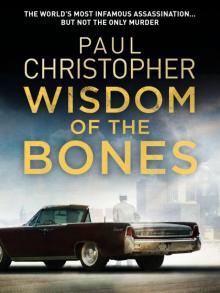 Wisdom of the Bones
Wisdom of the Bones The House of Special Purpose
The House of Special Purpose The Second Assassin
The Second Assassin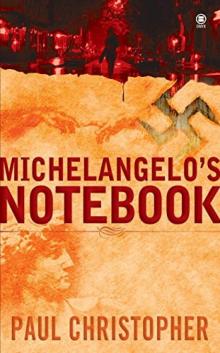 Michelangelo's Notebook
Michelangelo's Notebook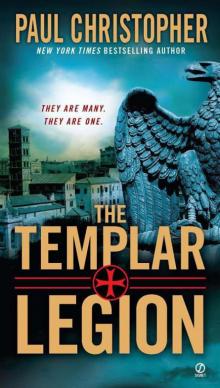 Templar Legion
Templar Legion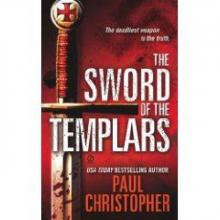 The Sword of the Templars t-1
The Sword of the Templars t-1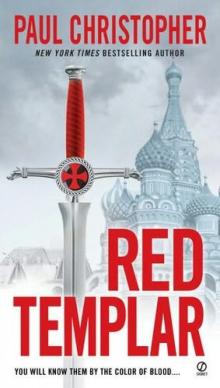 Red Templar
Red Templar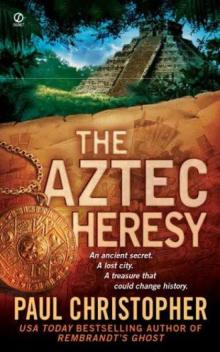 The Aztec Heresy
The Aztec Heresy The Templar Legion
The Templar Legion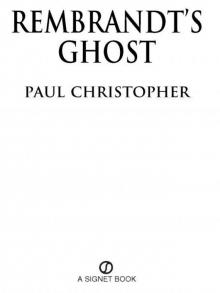 Rembrandt's Ghost
Rembrandt's Ghost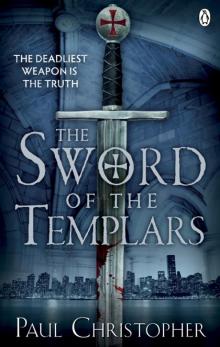 Sword of the Templars
Sword of the Templars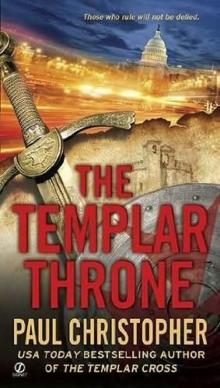 The Templar throne t-3
The Templar throne t-3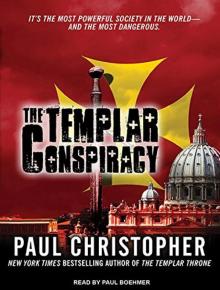 The Templar Conspiracy
The Templar Conspiracy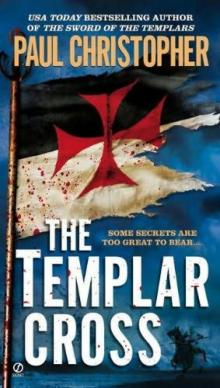 The Templar Cross t-2
The Templar Cross t-2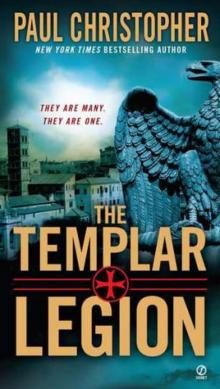 The Templar Legion t-5
The Templar Legion t-5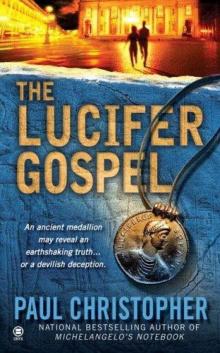 The Lucifer Gospel
The Lucifer Gospel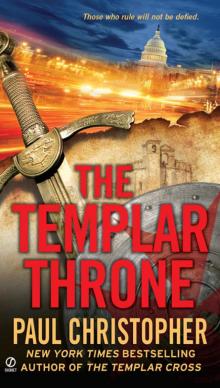 Templar Throne
Templar Throne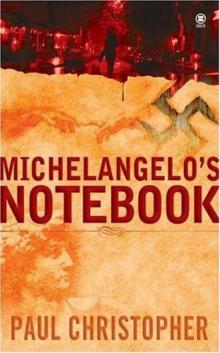 Michelangelo_s Notebook fr-1
Michelangelo_s Notebook fr-1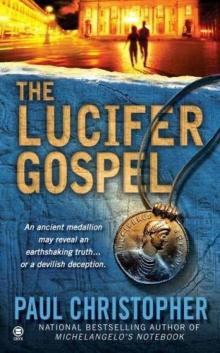 The Lucifer Gospel fr-2
The Lucifer Gospel fr-2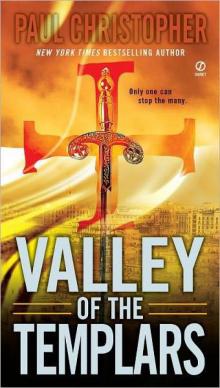 Valley of the Templars ts-7
Valley of the Templars ts-7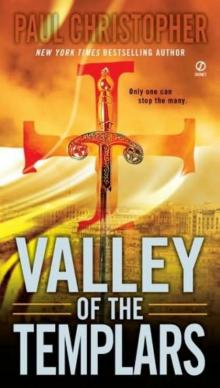 Valley of the Templars
Valley of the Templars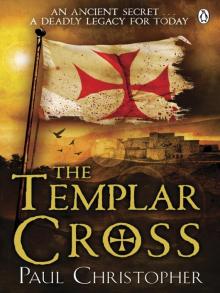 Templar Cross
Templar Cross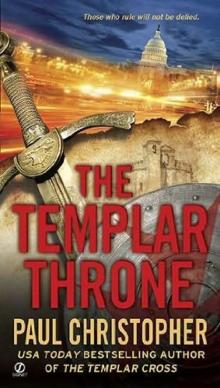 The Templar Throne
The Templar Throne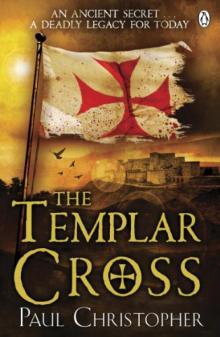 The Templar Cross
The Templar Cross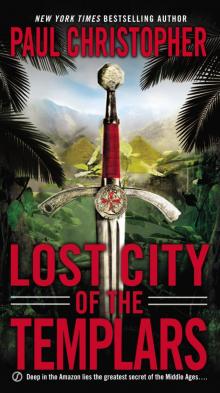 Lost City of the Templars
Lost City of the Templars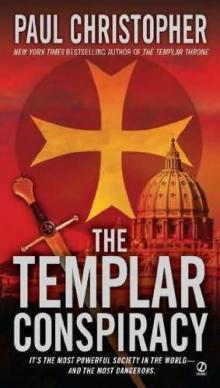 The Templar conspiracy t-4
The Templar conspiracy t-4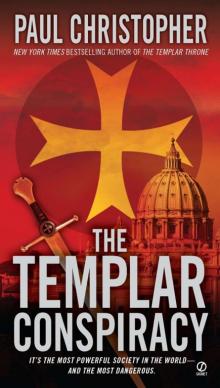 Templar Conspiracy
Templar Conspiracy